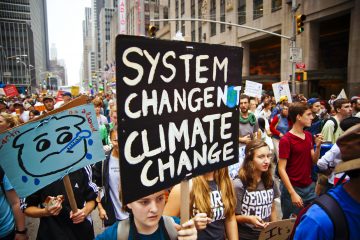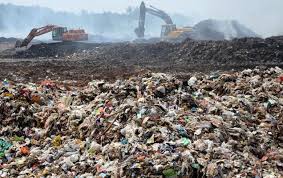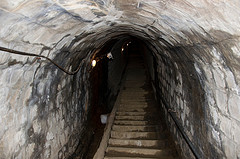Stronger Government Management and Policies are Necessary to Save Jakarta
On New Year’s Eve, Indonesia’s capital, Jakarta, was hit by the worst flooding since 2013. The disaster caused damages and insecurity across the metropolitan area, pushing thousands of families to try to temporarily relocate. Unfortunately, transportation systems were paralysed. The Transportation Ministry’s air transportation Director-General, Polana B. Pramesti, closed the Halim Perdanakusuma Airport because its runways were inundated by up to 80 centimeters of water. According to the National Disaster Mitigation Agency (BNPB), at least seven sub-districts in Jakarta were pounded by floods. Jakarta has long known to be vulnerable to ruinous floods. Empirical evidence shows 95 percent of North Jakarta will expectedly submerge by 2050. This is part of what motivated President Joko Widodo to announce on 26th August …

Carving up the climate communication landscape
Warren Pearce’s new ‘Making Climate Social’ project seeks to investigate the ‘contributors, content, connections and contexts of social media climate change communications’ in order to determine ‘what the social media revolution might mean for the tricky relationship between science, politics, and publics.’ Warren recently invited me to take part in a workshop to discuss his project, and this post arises out of that meeting. Apart from providing an excellent opportunity for alliteration, what can research into social media tell us about the ‘contributors, content, connections, and contexts’ of climate communication? Four types of participation In considering that question, I have been thinking how to classify the different types of participation in climate change discussions. To this end, I adapted a …

When the mafia acts like the state. Quantifying the (bad) effect of Italian organised crime on safe waste disposal
The phenomenon of organised crime in Italy is intrinsically connected with social development and is a powerful brake on institutional performance. The power of the organised crime lies in its involvement into seemingly legal activities and in the control exercised over entire economic sectors through systematic extortion and violence.
Since the early Nineties, southern regions in Italy have experienced chronic issues of illegal disposal of urban waste, mainly due to easy access to uncultivated land, presence of caves and sovereignty of mafiosi – to use a general definition that encompasses mafia, camorra, ‘ndrangheta and other networks. When combined with inherent weakness of local administrations that turn a blind eye to illicit trafficking of waste, this poses a serious threat to local welfare, health and agriculture.
In Italy, waste management is a public service funded by revenue from waste taxes. The operational part – collection, treatment and landfilling – is performed by private companies or subsidiaries, which compete in public tenders. The regional authority, via a regional commission, sets an average value for the price of landfilled waste, while local waste operators set site-specific gate fees. It follows that the waste operator gains higher profit from the combination of higher prices and larger quantities of treated waste. Net economic benefit from waste management depends on private costs of landfill establishment, operation, and health and environmental standards; hence it is not unreasonable to say that private costs are lower if the waste operator deviates to illegal disposal – an option offered by mafia.
This generates a loss of economic efficiency; the rent from waste management activities entirely accrues to criminal networks, which often infiltrate in the tender system and bid comparatively lower prices.

Romania’s Rosia Montana Mining Project: another example of the policy pitfalls of resource extraction
On January 28, a freezing day in Bucharest, hundreds of Romanian citizens protested against a government-approved gold mining project in Rosia Montana by a Canadian corporation, Gabriel Resources Ltd. It was not the first protest against the project: as I mentioned in a previous post, anti-governmental sentiment has swept the country since mid-January, and the row over Rosia Montana is a key issue. But despite the protesters’ warnings about the environmental, cultural and economic consequences of the project, Romanian authorities seem disinterested. The project’s opponents criticise the use of cyanide (a common technique used to leach gold from extracted material) which would have a devastating and irreversible impact on the region’s biodiversity. Moreover, the mine would lead to the destruction of over …









